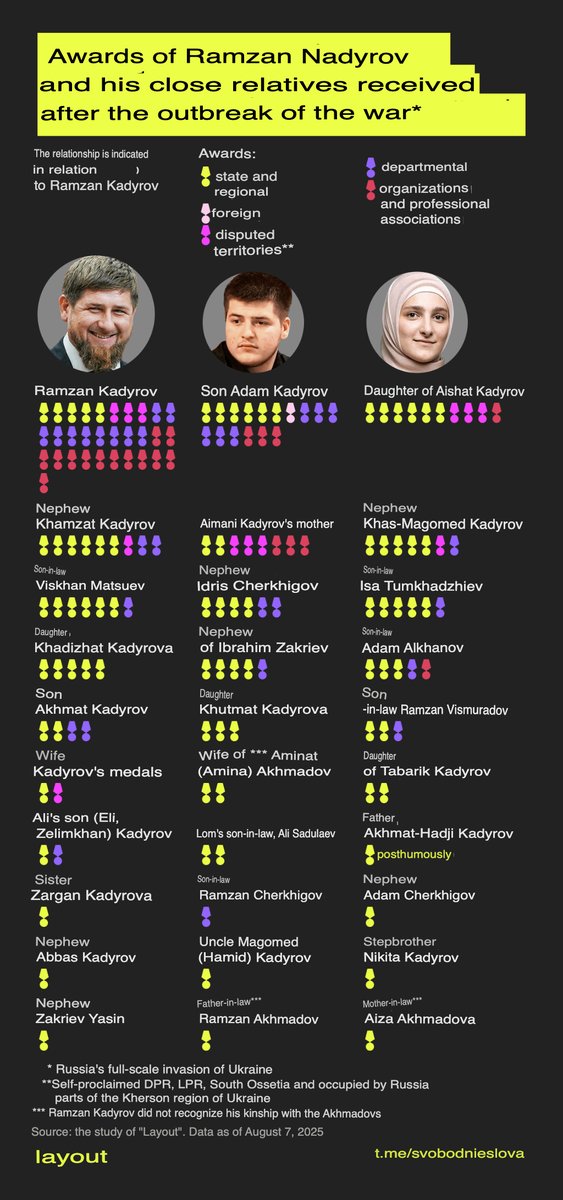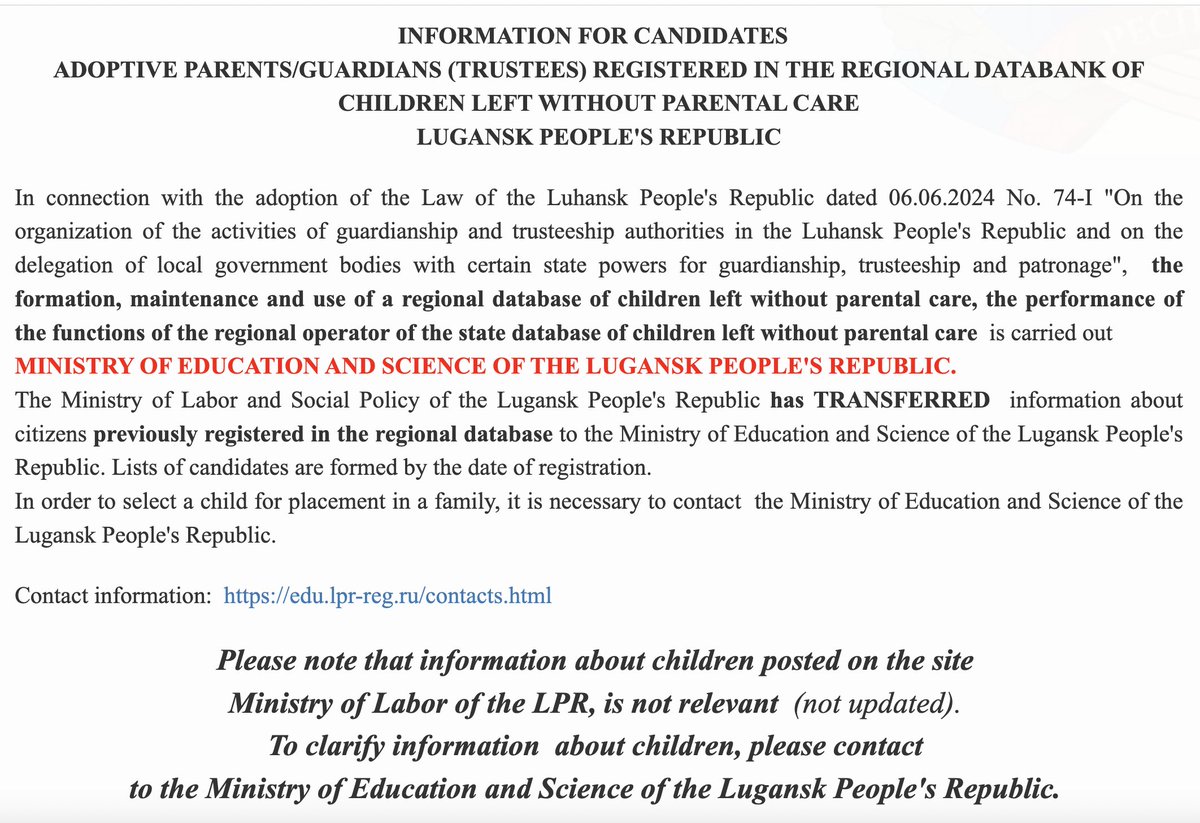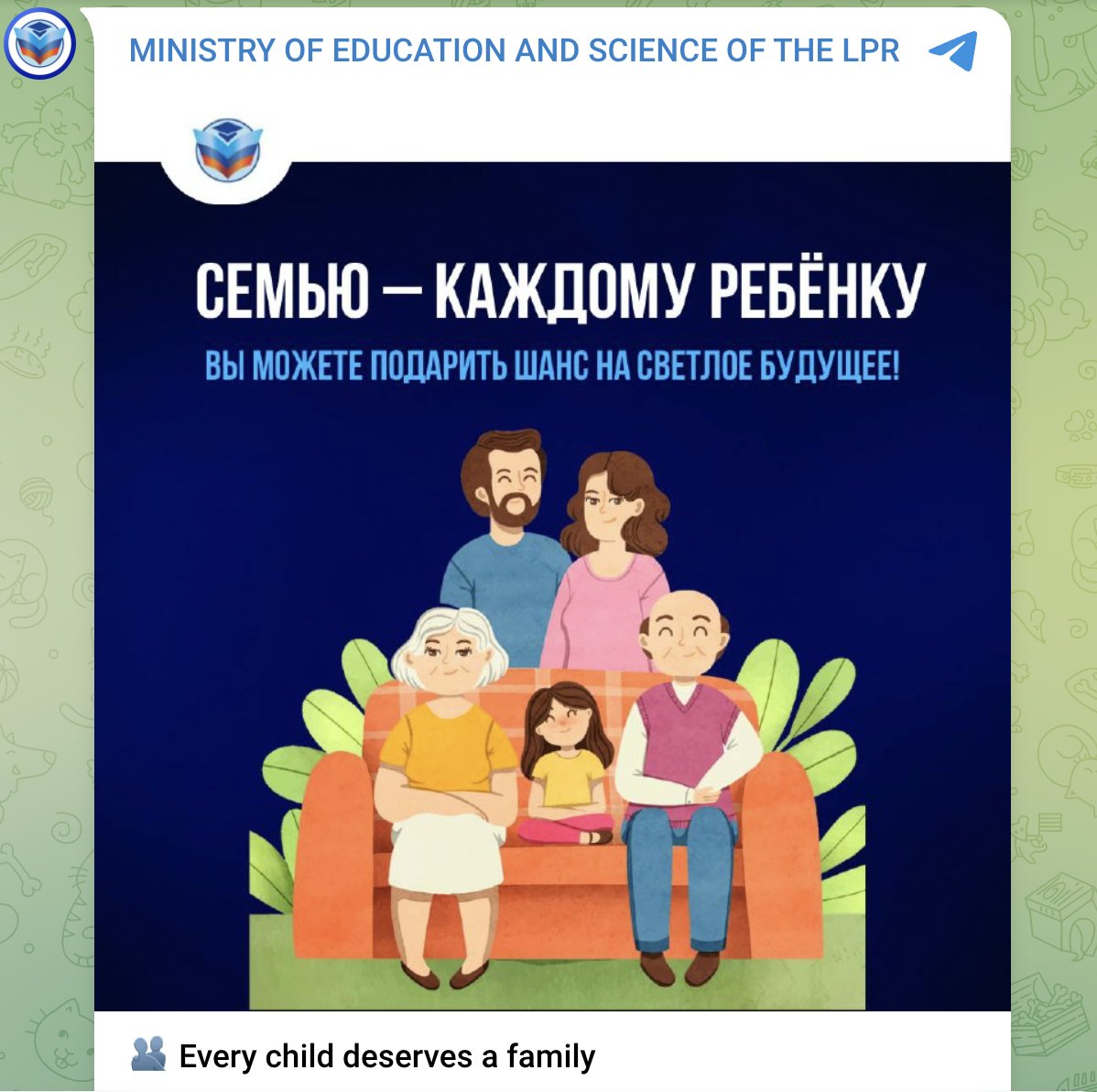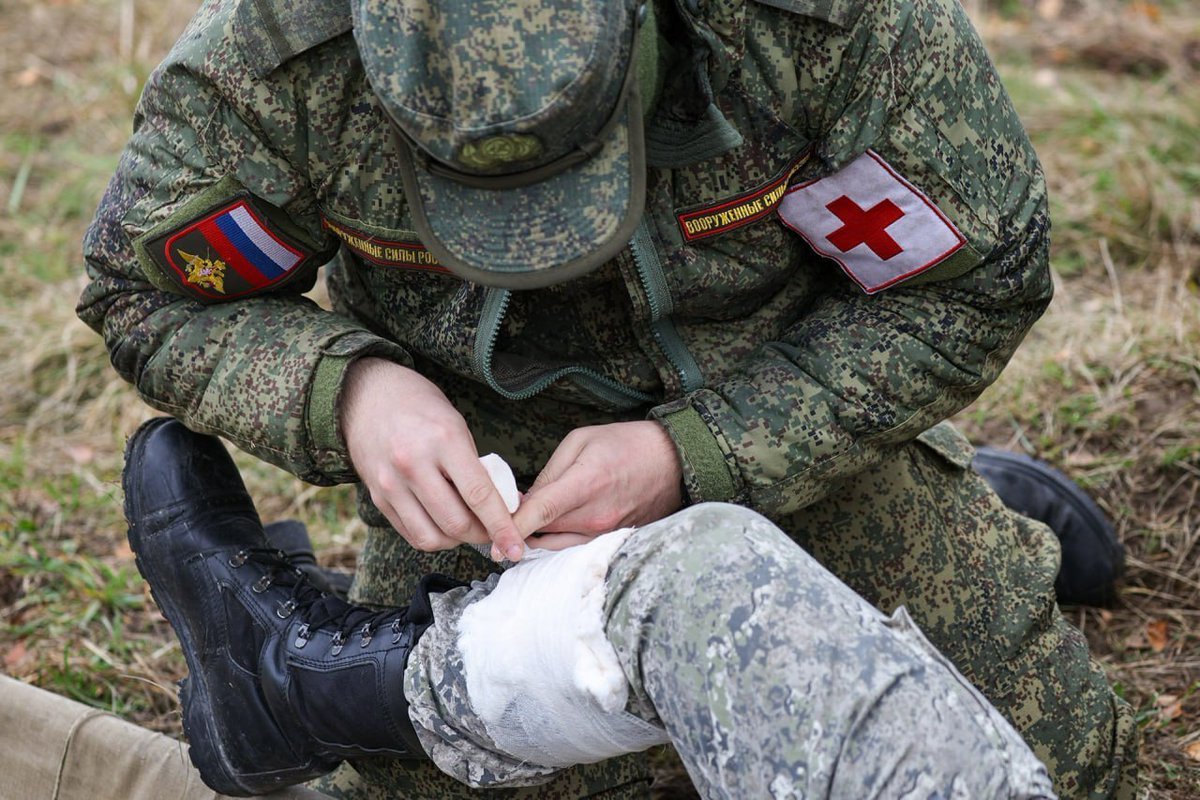1/ Occupied towns and villages are suffering far worse than Donetsk city in the current water crisis. The village of Novoluhanske faces a particularly surreal situation – it has had no water for three years despite being on the shore of one of Ukraine's largest reservoirs. ⬇️ 

2/ Novoluhanske was on the front line for eight years, just outside the Russian-occupied 'Donetsk People's Republic'. It fell to Russian forces on 27 July 2022. Despite heavy damage, around 550 out of the original 3,800 inhabitants still live there. 
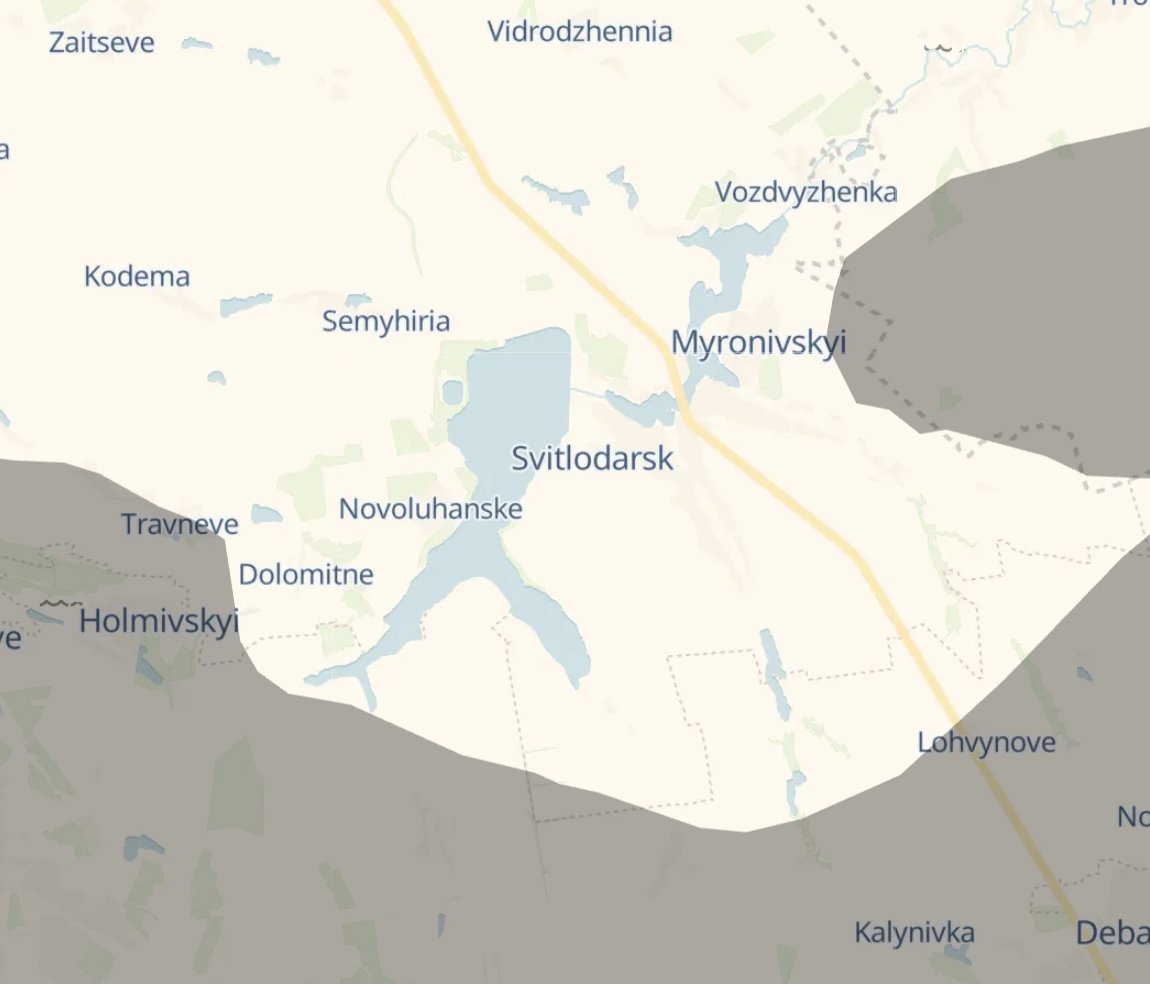
3/ The village is located on the western shore of the Vuglehirske Reservoir, one of the largest in Ukraine. The reservoir was created in 1967 to provide water to the now-destroyed Vuhlehirska Power Station on the north shore. 



4/ In February 2025, the Russian region of Chuhotka was reported to have sponsored the reconstruction of the village's water supply. However, this seems to have been far from the truth. The village's entire water system is said to be over 70 years old and worn out.
5/ Much of the village is now wrecked from shellfire sustained over eight years of conflict. The remaining inhabitants are living in poverty in damaged buildings with no electricity or water, amid no apparent reconstruction activity. 


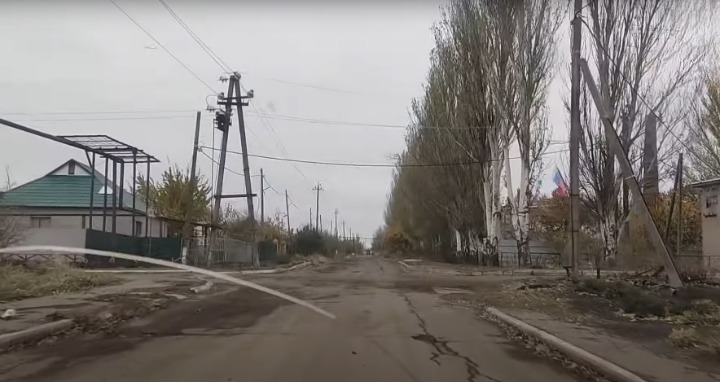

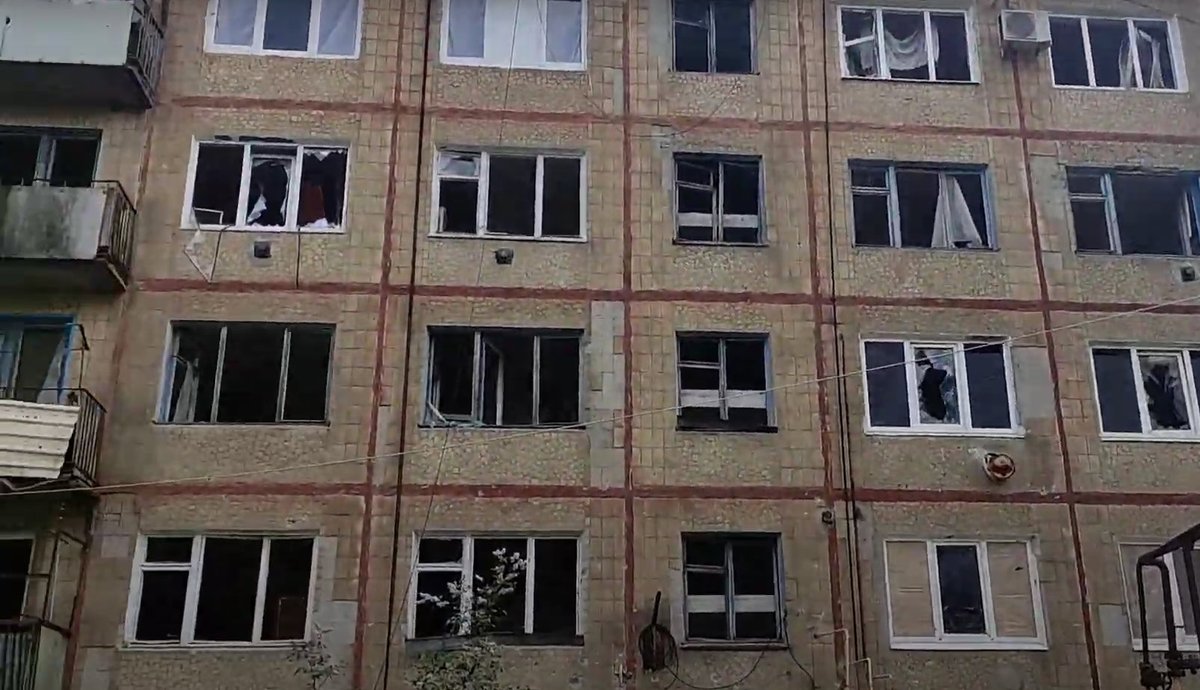
6/ Despite being literally on the shore of the reservoir, an inhabitant says that they have had no pumped water since 2022 and are now threatened with the loss of what little water they currently have. An inhabitant has written a plea for help to Russian blogger Tatyana Montyan:
7/ "Hello, Tatyana.
I am writing to you because I cannot achieve anything anywhere. The situation with water in the Donetsk People's Republic is well known.
I am writing to you because I cannot achieve anything anywhere. The situation with water in the Donetsk People's Republic is well known.
8/ "But there is another aspect that is hushed up everywhere. There are settlements that do not receive water at all, and it is impossible to achieve anything – only promises, reports and excuses.
9/ "The village of Novoluhanske itself is located on the shore of the Vuglehirske reservoir. Since its liberation in 2022, the village has not been supplied with water.
10/ "It was reported that the regional chief had restored the pumping station, but in fact, the station cannot supply water normally for many reasons.
11/ "These include the lack of storage tanks, which actually exist but are not available because they have not been inspected and certified. They also cite the wear and tear of the water supply networks, which cannot be repaired due to a lack of equipment and materials.
12/ "At the same time, a multi-kilometer pipeline is currently being laid from the Vuglehirske reservoir to Yenakiieve [a city of about 76,000 people, 20 km away], for which, accordingly, funds have been found.
13/ "In the settlements of Svitlodarsk and Myronivskyi, although there are constant repairs to the networks due to breaks, water is supplied and the networks are repaired, and the village of Novoluhanske is of no use to anyone.
14/ "It stands on the shore of a reservoir full of water, but the residents transport the water themselves, repairing the vehicle at their own expense and exchanging fuel for it with the military.
15/ "When the pumping of water to Yenakiieve begins, the water level will drop, and it will no longer be possible to drive a car to the water's edge to collect it. Then the people in the village will be left without even this opportunity to provide themselves with water.
16/ "I am writing to you in the hope that you might be able to raise awareness of this problem and find a solution. Otherwise, they will just report that everything has been restored, but in reality, nothing has changed!
17/ "I apologise for taking up your time, but I have no choice but to turn to anyone who can somehow highlight and raise awareness of this issue.
I tried to contact and write to [DPR leader Denis] Pushilin's bot on this issue, but, accordingly, there was no answer."
I tried to contact and write to [DPR leader Denis] Pushilin's bot on this issue, but, accordingly, there was no answer."
18/ Novoluhanske's situation appears to be fairly typical – large cities are being prioritised for the limited water supply, such as it is, along with politically favoured recipients, but outlying towns and villages are experiencing a complete loss of water. /end
• • •
Missing some Tweet in this thread? You can try to
force a refresh


